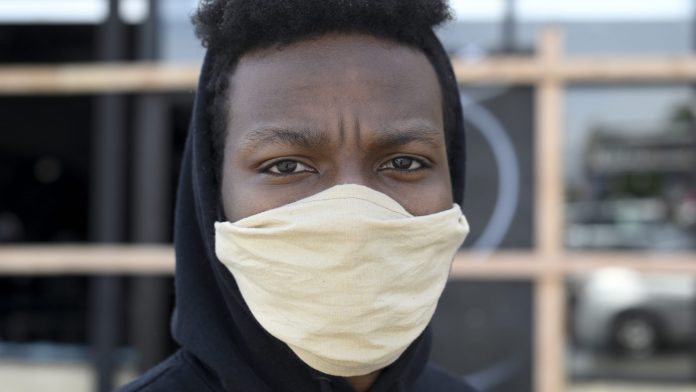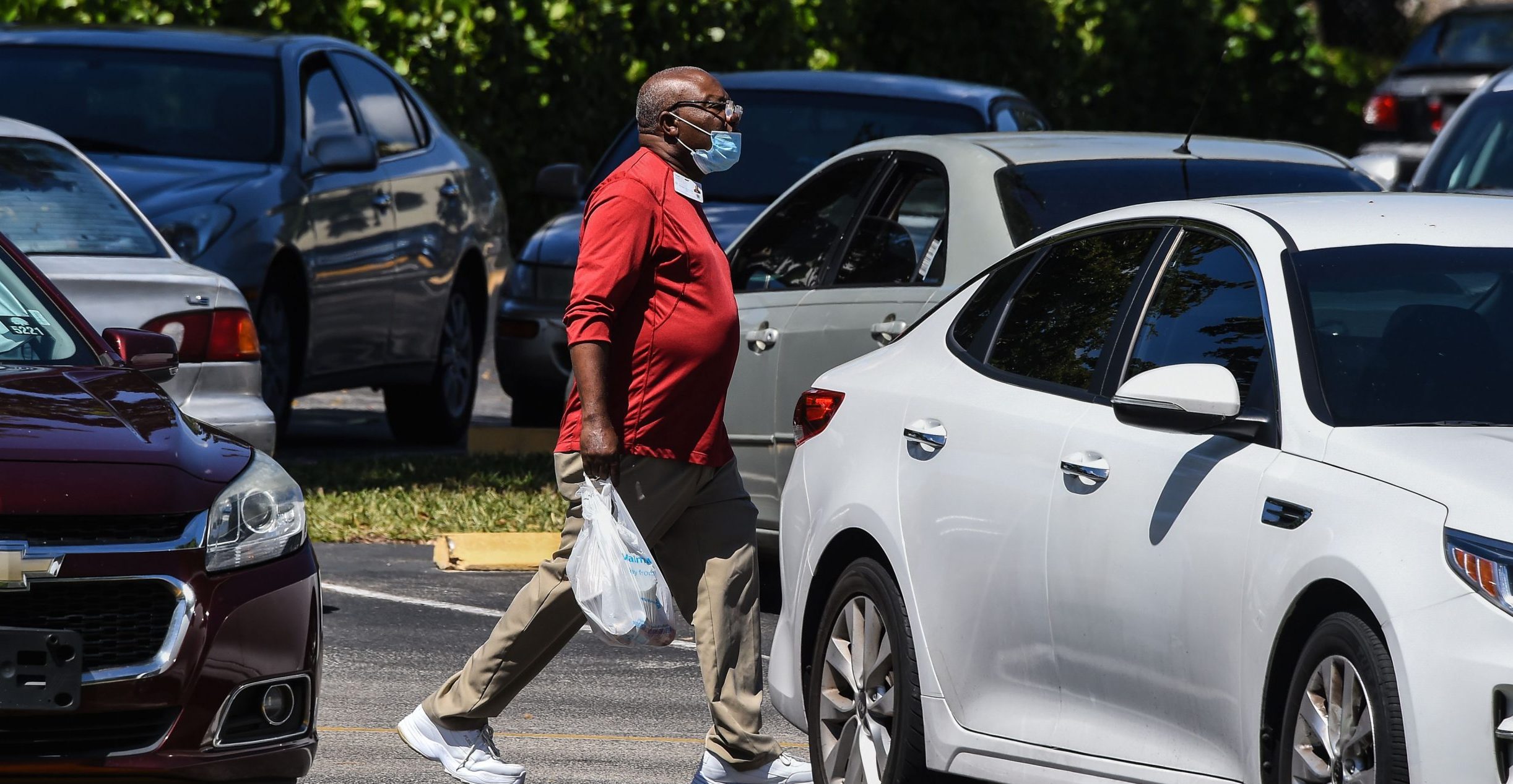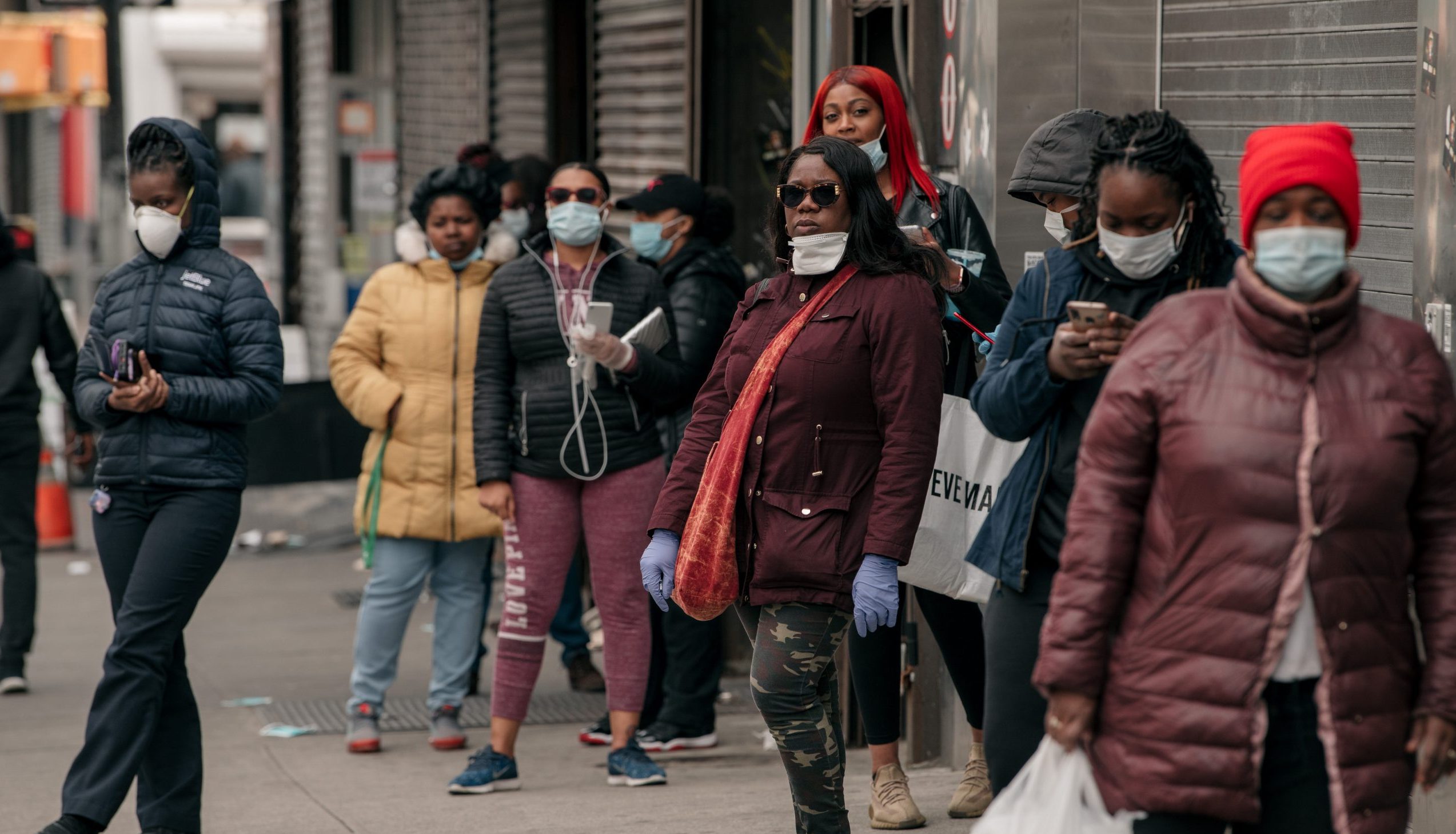
COVID-19 continues to devastate Black communities despite myths that Blacks either cannot be affected or that they are not taking this pandemic seriously. As more data becomes widely available, results indicate that Blacks are disproportionately at risk to contract and die from the novel coronavirus.
But they are also more likely to take greater action to prevent the spread of the virus amid concerns of racial targeting by the larger public and the police.
READ MORE: Many forces behind alarming rise in virus cases in 21 states
That’s why Black communities are in a double bind: as Blacks attempt to preserve their health, their wealth suffers. Recent data suggests that Blacks cannot afford to sustain themselves financially through COVID-19. So, as experiences with economic hardship continue to disrupt stability, how are Black perceptions and behaviors changing?

For the Black community, financial hardship is very real. In a recent poll conducted in support with the African American Research Collaborative, we found that over 1/3 of respondents report at least one financial hit due to the COVID-19 pandemic.
A large percent of Black respondents state that they lost their job or had their hours cut, didn’t have enough money to cover food expenses, are having trouble paying for housing, are still waiting for unemployment funds, lost health insurance, and on top of that, are now trying to support family members that are worse off.
Despite these challenges, Blacks are 4 times (80%) more likely to prioritize flattening the curve to assure safety than ending the shutdown (20%) to open businesses now. When we isolate the data among those stating they have experienced at least one financial circumstance because of the recent COVID-19 outbreak, the results overwhelmingly support extending the shutdown to flatten the curve.
READ MORE: Senator questions if ‘colored population’ not washing hands is behind COVID-19 disparity
As we continue to break down the data by those who have had encounters with COVID-19, our findings reinforce the narrative that the Black community is dedicated to maintaining public safety. Our results demonstrate that Blacks are almost 2x as likely to know a friend or family member that either died from or contracted COVID-19 than to report having COVID themselves.
Regardless of their number of encounters with COVID-19, roughly 7 of every 10 respondents remain consistent in their beliefs that their health takes precedent despite multiple experiences with financial hardship.

In addition to prioritizing their health, Blacks are also making sure they remain steadfast in their political activism. While our data show that Blacks are experiencing feelings of fear and anxiety and are at greater risk of contracting and dying from the virus, Blacks are still saying they are enthused and very certain they will show up at the polling booths in November.
Perhaps unsurprisingly, when asked if COVID-19 would make them more or less likely to vote, or have no impact, over 50% of all respondents said that the pandemic made them more likely to turn out at the polls to elect a leader who will more effectively address COVID-19 moving forward.
Results from the survey not only highlight the commitment Blacks have to stay healthy and safe, but also to staying civically engaged.
Thus, as public health officials and providers continue to combat the COVID-19 pandemic, we must emphasize that the Black community is thinking of the well-being of their future; and as a result, are looking to elect someone who is doing the same. It is clear from our results that the pandemic is having a lasting impact on Black households and Black health.
As growing concerns with reopening businesses continue, Blacks are uniformly weighing in— flatten the curve first, reopen businesses when it’s safe. Ultimately, Blacks have changed their behavior to reduce their risks to contracting and spreading COVID-19 and they will continue to do so even if this means risking their lives to show up on election day.
To our policymakers, it’s time to listen up. Moving forward, pay attention to harmful myths exacerbated by the media that are anchored in racist underpinnings — instead educate with evidence. COVID-19 is mobilizing the Black community to turn out to vote. As candidates hone in on their platforms, it is with great certainty that Blacks are looking for a candidate who will more effectively and proactively address COVID-19 and its devastating effects on their communities.
Officials should not assume that the Black vote is accounted for, and those who refuse to heed the call will pay at the ballot box. At the hands of centuries-long structures of oppression and institutional racism, the US economy has benefited from unequal access to markets that have left generational wage, income, and wealth gaps among the Black population.
Plainly put, the economy has never prioritized Black wealth, so it is no surprise that Blacks choose to prioritize their health.
Brooke Abrams is a Ph.D. candidate of political science at the University of New Mexico.
Ray Block Jr. is an Associate Professor of political science and African American studies at Pennsylvania State University.
Have you subscribed to theGrio’s new podcast “Dear Culture”? Download our newest episodes now!
